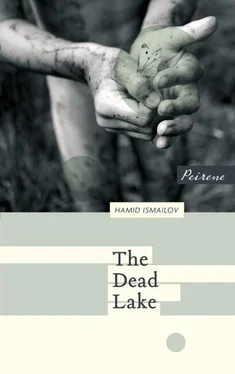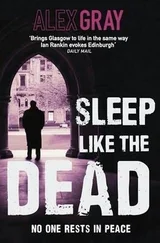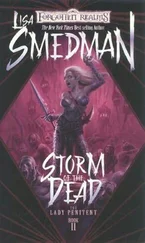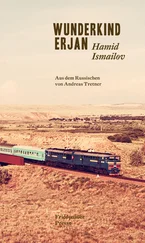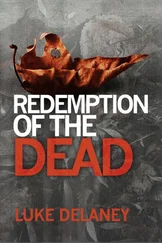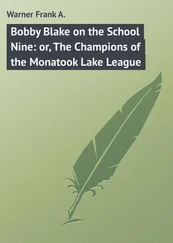* * *
‘Wunderkind!’ Petko said one day, gazing at Yerzhan with loving eyes, and the nickname stuck firmly. Uncle Kepek adopted it promptly and Shaken exclaimed, ‘Now we will definitely not only catch up with but also overtake America!’ He explained what the word meant in translation from the German. ‘ Wunder ’ was a miracle and ‘ Kinder ’ was a child, and so he surmised that it would be more correct to say ‘ Wunderkinder ’. Grandad Daulet learnt this word too. Only the grannies Kazakhized it, calling their grandson ‘ buldur kimdir ’ – ‘this someone’. Yerzhan liked his new nickname and flaunted it at every opportunity: when Grandad’s friend Tolegen came on the delivery train, when a passenger train stopped in the siding, when the local militiaman or the district doctor came to see Petko at the Mobile Construction Unit. One of the adults would cry, ‘Wunderkind!’ and Yerzhan would immediately grab his violin and rush to answer the call, playing Paganini’s Caprice or Vivaldi’s Spring .
‘A wunderkind!’ they all agreed – the idle passengers in the train, the terrifying militiaman and the doctor, and kind old Uncle Tolegen too.
‘We have to show him to the conservatoire!’ Shaken enthused. ‘I’ll take a few days’ leave and go to Almaty with him!’ Yerzhan was terrified. Did they want to conserve him? Is that what they did with a wunderkind – like fruit in jam and cucumbers in brine? Shaken explained what the conservatoire was, but it didn’t calm Yerzhan. He still remembered what had happened last time when Grandad Daulet wanted to take him to the city and the fly started buzzing in his ear and the wagon tumbled over. Luckily, except for Uncle Shaken, everyone else seemed to be on Yerzhan’s side. Grandad dismissed the idea with a shrug: ‘He’ll go to school soon and it will all blow over!’ – as if he was talking about a brief cold. Uncle Kepek shrugged the conservatoire idea off from a different angle: ‘Even if he is a paedo, our Pedo studied with Oistrakh!’ – and he pointed at people playing the violin or the dombra on the television. ‘Look, my little darling nephew plays a hundred times better than any of those blockheads! Give me two strings, put a stick in my hand and I’m the master of the land!’ The comment made Grandad angry, but it didn’t make him change his mind.
‘Hey, Wunderkind, come here and give my bumps a rub!’ Granny Ulbarsyn called from the next room. She certainly wouldn’t let her favourite masseur go anywhere.
Yerzhan went to school when he was seven. ‘Went’ sounds very simple, but the school was in a village eight kilometres from Kara-Shagan, so ‘going to school’ meant walking eight kilometres in one direction and eight kilometres back. On the first day, Grandad insisted that Yerzhan hang the dombra from one shoulder and the violin from the other. At school the pupils gathered in the sports hall and Yerzhan played first one instrument and then the other. Since that day no more coaxing was required for the nickname ‘Wunderkind’ to migrate from Kara-Shagan to school, and his classmates soon started to call Yerzhan ‘Wunda’. And ‘Wunda’ played Kurmangazy and Tchaikovsky by turns whenever the school inspectors came to visit.
Winter arrived. Howling hungry wolves and jackals loped across the steppe. It was no longer safe for Yerzhan to walk to school and so Grandad took him by horse. The boy warmed up in the classroom, while Grandad Daulet sat in the railway canteen. His patience lasted for two days. Then he informed the director of the school that he would take his grandson home for the rest of the winter. And once again Yerzhan was left alone with his violin, exercise books and pencils.
Under the dim light of the lamp Granny Ulbarsyn sorted through camel wool while Yerzhan hunched over the table and drew whatever came to his mind. And as the long winter evenings dragged on, he eventually taught his Aisulu to read and write. She started school the following summer and quickly became the best pupil in the class, because she knew in advance what the other untutored children were only just trying to master.
Uncle Shaken now took them to school on the camel, crammed in between the two humps. But when he disappeared to work his shift catching up with and overtaking the Americans, Grandad Daulet sat them both on the donkey. He handed them each a dry cob of maize to scatter the grains along the route. ‘That way,’ he said, ‘you won’t get lost… And if you do get lost,’ he added slyly, ‘we’ll set the chickens on the trail and they’ll find you.’ Although how could they get lost, when the route ran alongside the railway line the whole time? And in the mornings, on their way to school, the sun shone in their faces from the right all the time and in the afternoon, on their way home, it would shine on their right side again.
Aisulu held on tight to Yerzhan’s thin shoulders and they galloped, sometimes with the wind, sometimes against it, sometimes through a whirlwind, sometimes through a dust storm. And in the early days they wasted their time vainly scattering grains of maize, which the skylarks and rollers of the steppe religiously pecked up. But soon the sun hid behind the fast-moving autumn clouds.
Aisulu was still joyfully singing a Dean Reed song right in Yerzhan’s ear when their donkey picked up a cabbage stalk thrown out of a passenger train. The animal swallowed the stalk whole and immediately choked. It lashed out so suddenly that Aisulu tumbled off the donkey’s back in mid-note. Then Yerzhan followed, to the other side. The animal shuddered and wheezed and shook its head from side to side. Yerzhan didn’t lose time and jumped up and flung himself at the donkey in a fury. At first he was going to beat it, but when he saw the foam frothing out of its mouth, he was seriously frightened. The animal wouldn’t let him get close; it kicked out and lashed at him with its tail, baring its teeth and snorting terribly. ‘Hold him!’ Yerzhan shouted, and little Aisulu, dropping her briefcase on the ground, grabbed the reins and pulled the donkey’s head down towards the ground. Without stopping to think, Yerzhan parted its jaws and stuck his arm up to the elbow into its mouth, reaching through the foamy mush. His fingernails touched the stalk and with all his strength the boy jerked it out. The donkey howled and sank its teeth into Yerzhan’s arm. Swearing like a grown-up, Yerzhan shrieked, ‘Fuck your mother!’ But he didn’t let go of the stalk and pulled it out of the donkey’s jaws. He ignored his bleeding arm and smacked the animal between the eyes! The donkey howled in resentful gratitude at the top of its lungs: ‘Ee-yaw! Ee-ee-yaw! Ee-ee-ya-aw!’ Aisulu, too, swore just like Granny Sholpan: ‘A plague on you! Foul beast! Do you hear what I say?’And then without any more lamentations she took the scarf off her head, licked away the blood flowing along Yerzhan’s arm from under the hoisted-up sleeve and bound the wound tightly.
On that day they missed school.
Yerzhan and Aisulu shared happy childhood years. Together they plastered the back walls of the two houses with cowpats that were their fuel for the winter. Or they hunted through the goods trains that had stopped on the siding. And sometimes, when a wagon was piled up with coal, they swept out a sack or two of the dust that was stuck along the side frames of the bogies or over the suspension of the wheels. Or they managed to break out a wooden brace that stabilized the platform, to use as firewood or building material. But what they enjoyed most was to take hot water and powdered milk to passenger trains waiting in the siding for an express goods train with important cargo to pass and sell their beverage or play the dombra to earn a little money. And city people from unknown lands, golden-toothed Uzbeks, yellow-haired Russians and red-shirted Gypsies gave them brand-new coins and paper roubles. And sometimes they would even receive a sweet or some city knick-knack. And once someone gave them a bar of chocolate. They shared the sweets half-and-half, but Yerzhan generously let Aisulu have all the knick-knacks, and she accumulated a whole heap of them in boxes and little drawers: lipstick, Komsomol and Young Pioneer badges, one ballpoint pen, a key ring and even a huge pair of sunglasses.
Читать дальше
